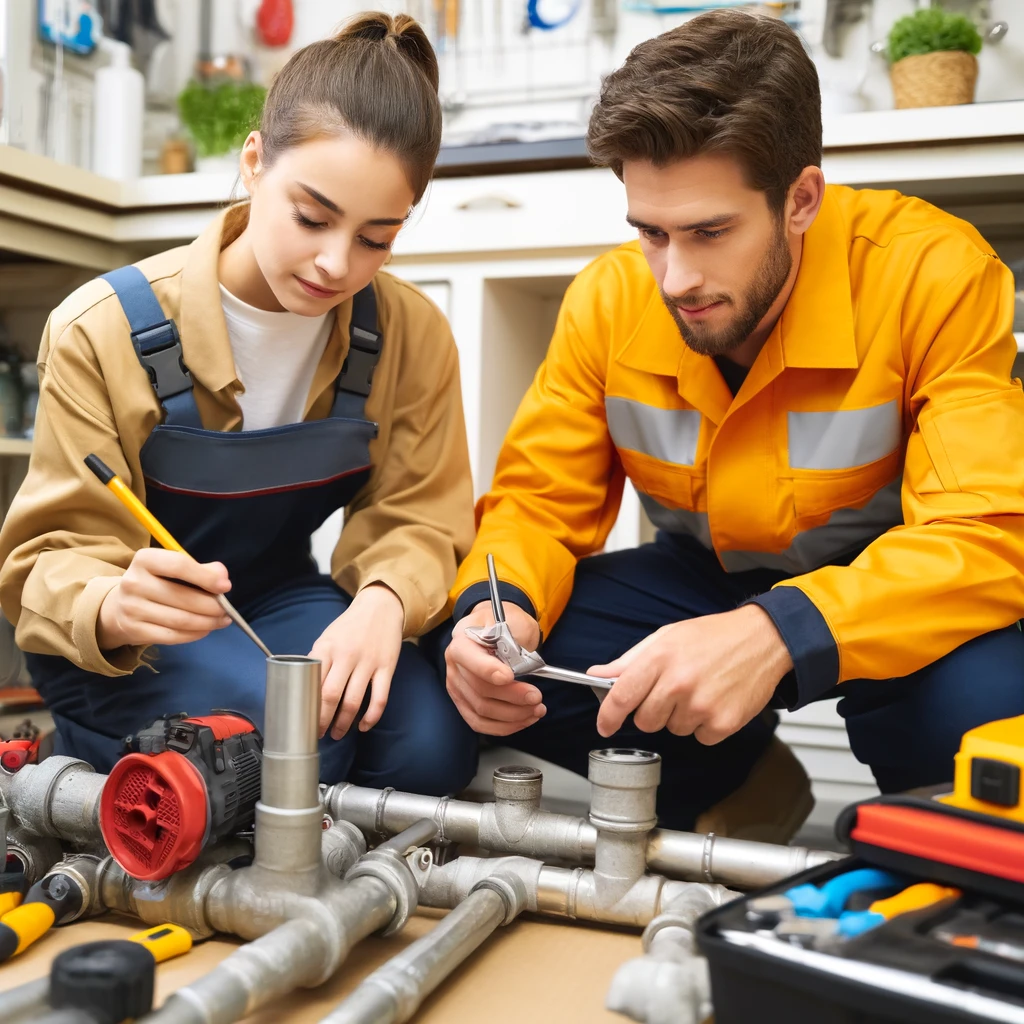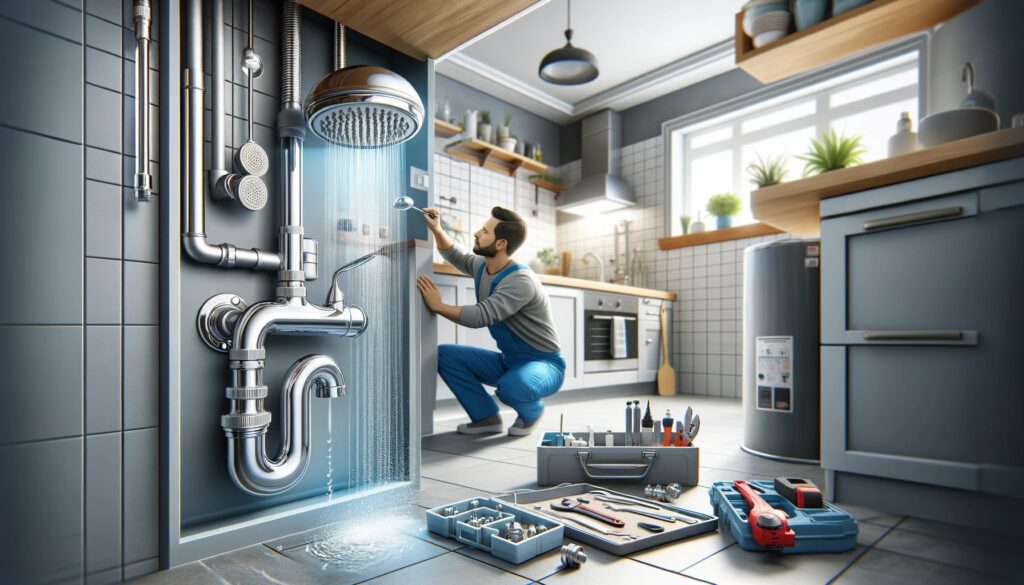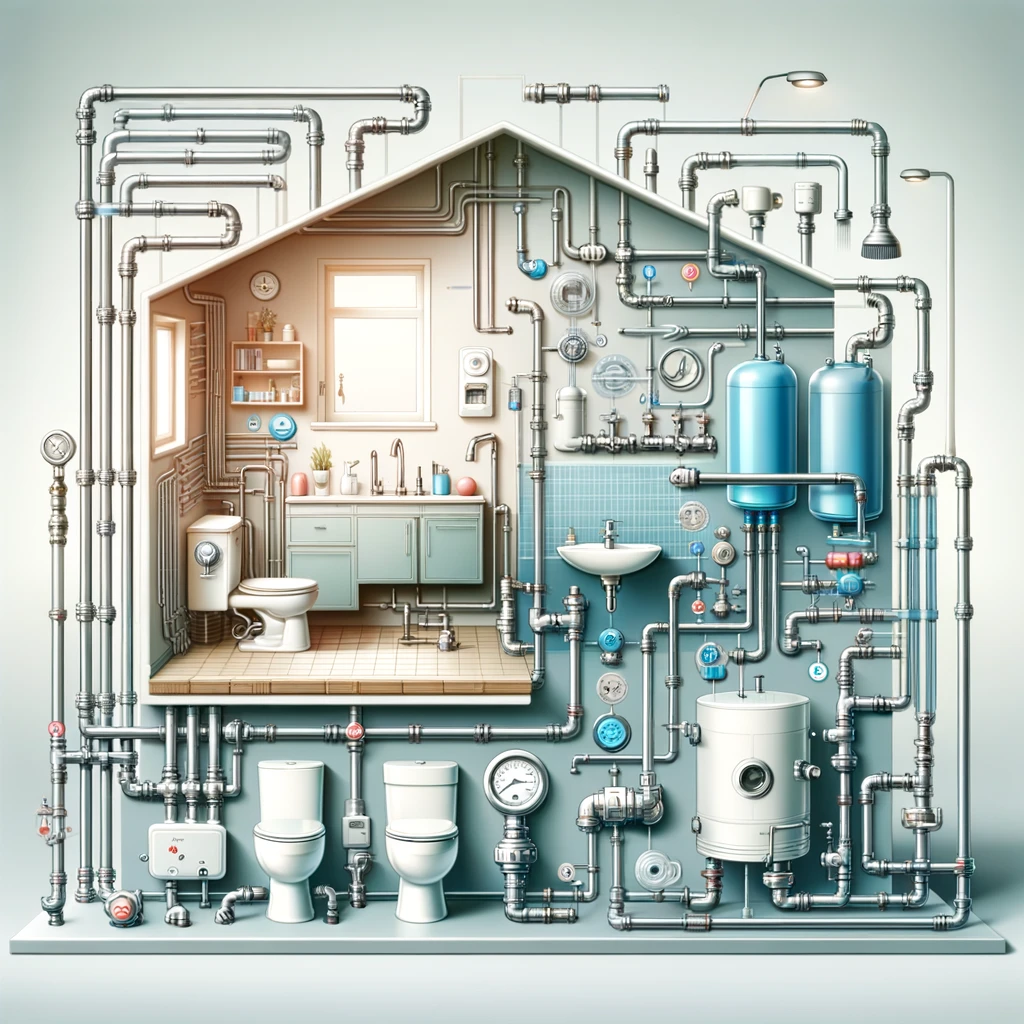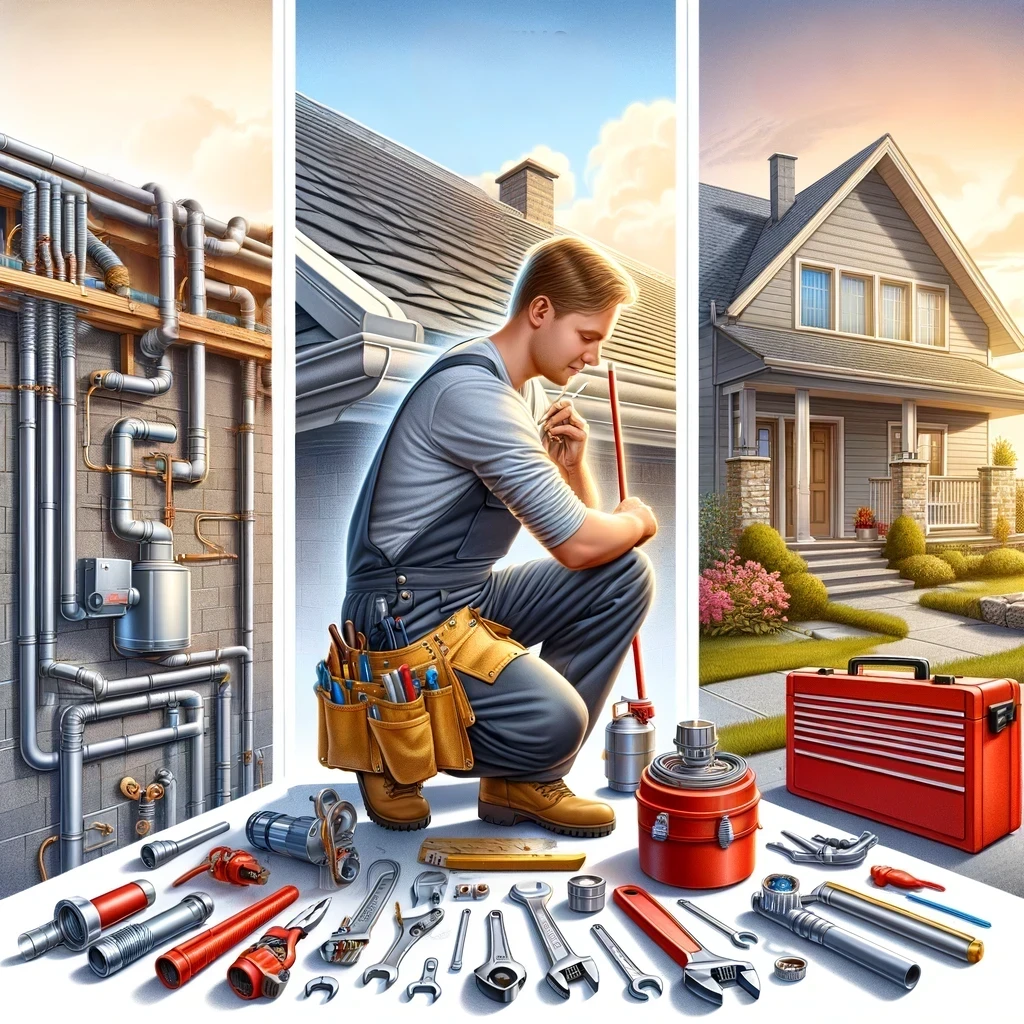Unlocking Your Career: Understanding Plumbing Apprenticeship in Plumbing Services
What is an apprenticeship in plumbing? A plumbing apprenticeship program is a formal and practical on-the-job training program that includes classroom instruction, designed to provide individuals with the technical skills necessary to work as a qualified plumber. This journey takes raw talent and refines it into a team of educated professionals, positioned to handle the essential aspects of one of the most popular trades in today’s job market.
Why become a plumbing apprentice? Why it is a Convenient choice for promising career opportunity.
To start, plumbing is a trade that will always be needed. Plumbing services are needed to sustain safe homes and business with proper functioning water supply and waste management systems. Being a plumber, you are among the few who plays an important role of making sure that these systems operates batch to their capacity: giving you fulfillment end contributing to societal benefit.
Aside from this real-world application, however, a career in plumbing brings an array of vocational pros that can apply to anyone with varied interests and ambitions.
- Security in Job Demand: With a constant need for skilled plumbers, it means more job security and your career is secured generally.
- Ability to Earn a Good Living: Plumbing is refers too as an influential profession with the potential of people getting wealthy especially if they gain experience and improve their skills.
- Challenge: Every day is an unique workday, with numerous assignments and tests that will keep you interest and sharp.
- Work with Hands-On: If you are the type that loves doing chores, plumbing helps you to put your work into use physically.
- Career Progression: You may choose to specialize in areas such as gas fitting, mechanical services or drainage, or progress into your own plumbing business.
- Job satisfaction: You will feel fulfilled and your labour would be evident in the form of safe plumbing inside homes or businesses.
Going into a plumbing apprenticeship is how to do just that and it carves out an exciting career combination of technical skill and hands-on work. It’s an educational three part journey, teaching and nurturing people to be stable in career choices and have a greater impact in their communities.
How to Apply for a Plumbing Apprenticeship: The Gatekeeper of Your Future
Becoming a plumber may seem complicated but the first step is really as simple as applying for a plumbing apprenticeship. Yes, I know it can be a little intimidating, but with some preparation and mindset you could navigate the journey like a boss and increase his chances of win.
Step 1: Research & Opportunity Identification
- Create Relationships with Industry Experts: Contact your friends, family members or colleagues who have a plumber acquaintance or have worked for building contractors. They may offer important lessons or even information about open apprenticeship positions.
- Utilize Online Job Boards — Browse popular job boards such as Indeed, LinkedIn, or trade-specific websites for plumbing apprenticeship listings.
- Local: Locate plumbing companies close to you and contact them, even if they have not advertised for an apprentice.
- Trade Schools and TAFE: Not true schools, some trade schools have good apprenticeship programs and linkages with plumbing businesses. Get in touch with them for information and advice.
Trade Unions: It is not really a source of training like the other sources above, but here you can meet with plumbing apprenticeship programs and link directly to employers.
Step 2: Create an awesome resume and cover letter.
- Prioritize Transferable Skills: While you might not have relevant plumbing experience, emphasize skills that align with the job, such as your problem-solving or communication abilities or manual dexterity from hobbies or other professions.
- Demonstration Of Interest: Introduce your love for plumbing, emphasising as to what excites you about this field and why do you want it as a career.
- Tailor your application: Personalize your resume and cover letter on a case by case basis, showcasing the skills and experiences that are relevant to the individual plumbing company or program.
- Proofread: Proofread and Proofread: Make sure your resume and cover letter has no mistakes in grammar or spelling. A Clean, Professional Look Is Critical
Step 3: Get Ready For Interview
- Find out more about the company: Have you ever knew what are their achievements and services that they give to the customers? It shows that you are really interested and ready with whatever they have for you to do.
- Practice Answering Standard Questions: Expect to get asked about why you want this job, your relevant skills for it, and how much experience you possess. Have a short and confident response.
- The apprentice program (show your interest by asking questions), company culture, advancement opportunities are just a few of the topics you can add.
- Professional Dress Code: The first fraction of a second to make that impression count for the interviewer; and is nothing other than, seeing your appearance in their opinion.
Getting the backing for a plumbing apprenticeship will require some initial navel gazing, followed by some legwork that encompasses online research and sending through a decent application pack before you address how to prepare for an interview. This way, you come off as a more serious candidate and improve your likelihood of starting down the plumbing career road.
What Will You Learn in a Plumbing Apprenticeship: Becoming Proficient in Your Craft
You learn the skills and gain knowledge to become a successful plumber, not just how to fix leaks and unclog drains. This MSc course will immerse you in the world of plumbing and help you become an expert in a wide variety of topics relating to practical methods right through to discussing the science behind water & drainage systems.
Plumbing and its kinds of services: An array Of The various Expertise Provided
Plumbing is a broad relief of services and an apprentice will have to not be sufficiently skilled in all the detailed elements, but at some stage understand every large part of plumbing. Categories:
- Drainage: Planning, constructing and repairing drainage systems to collect sewage and storm water.
- Gas Fitting: Installation, removal and repair of gas lines for appliances and heating systems.
- Mechanical Services Plumbing: includes the installation, servicing,and repairs of water and gas lines required to operate mechanical systems including HVAC units.
- Roof Plumbing: Rainwater pipes, downpipes and gutters Roof Plumbing – Install, Repair, Maintenance
- Sanitary Plumbing: Installation and maintenance of wastewater lines and systems.
- Water Plumbing: Installation, repairs and maintenance of hot and cold water lines, fixtures & appliances.
- Fire Protection: Installing, servicing and repairing fire sprinklers systems and other equipment for fire protection.
Building Blocks Of Your Trade: The Most Essential Plumbing Skills
Plus, general plumbing skills you’ll come across as an apprentice;
- Hand-eye Coordination and Fine Motor Skills: Using tools of all kinds and products handmade, in addition to demonstrating the ability to work with small parts but also large ones.
- Problem Solving: Be able to think through troubleshooting and diagnosing plumbing issues, understanding how plumbing systems work is crucial for identifying the root of the issue.
- Interpreting Blueprints and Technical Drawings: Converting plumbing designs sketched on paper to physical installations requires understanding of technical drawings as well as schematics.
- Soft Skills: Talking to clients, consulting with contractors and working closely with others from other professions is key for knowing what the client wants and using the easiest words to explain your ideas.
- Safety and Compliance: Safety is the top most important thing to keep in mind for both workers installing it, and everyone else because of this following rules issued by common building codes has always been the more standard way to properly complete a plumbing job.
Tools and Materials Needed for Do-It-Yourself Home Plumbing
Some of the tools and equipment you must learn how to use as an apprentice.Minnesota Vikings Foldable Sunglasses ^Minnesota Vikings Foldable Sunglassessorts Fan ShopCategory NFL Team – English this will open a new tab with…
- The Basics: every plumber should have in their kit a variety of hand tools, such as wrenches,pliers’s sketch jcrewdrivers, cutters and pipe cutter.
- Power Tools: If you want to get any job done right, then this would require certain power tools like drills, saws, grinders and pipe threading machines.
- Drain Cleaning Tools: Pipe benders, drain augers, leak detectors and pressure testers are indispensable items for individual drains<Response]
- Heavy Equipment: Backhoes, excavators and forklifts will be used on larger projects.
A good plumbing apprenticeship goes well beyond the menial repairs. Master the basics of most plumbing specializations, hone your hand-eye coordination, learn problem-solving and communication skills, familiarize yourself with the tools and equipment that are pivotal to the trade
Apprenticeship Curriculum – You Will Be Schooled In The Trade Inside/Out
A plumbing apprenticeship combines classroom learning with practical, real-life experience so you can receive the well-rounded education it takes to be a successful plumber in your trade. When you gain experience alongside your formal education, you are sure to learn both in the books and on the job — giving you all of the expertise needed to become an expert plumber.
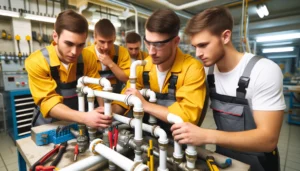
Formal training: Laying an academic groundwork
Theoretical aspects of the apprenticeship are usually delivered at TAFE (Technical and Further Education) or another recognised training provider. These jobs and plumbing standards content the focus of this certification.
– While the specifics of a plumber apprenticeship program will vary greatly based on location and educational institution, here is an overview of some general topics that are likely to be included in this type of training:
- Plumbing Codes: It is crucial to understand the plumbing codes and requirements in your area so that you can make safe and proper installations.
- Plumbing Systems & Components: This course teaches you about the different types of plumbing systems, their components and how they work.
- Principles of Water and Drainage: Understanding water pressure, flow rates, drainage parameters are essential to the practical design and installation of plumbing systems.
- Plumbing Materials: Learning about the different types of pipes, fittings, valves and fixtures used in plumbing is important when choosing which materials you will use on a particular project.
- Safety and Health Protocols: A large part of plumbing apprenticeship is instructing on safety procedures, hazard recognition, emergency solutions in order to prepare someone for the kind of hazardous exposure they are supposed to suffer while working.
Practical Application of Your Skills
While formal course work gives you a theoretical base for those skills, on-the-job training is where the rubber meets the road. Working on a range of jobs under the supervision of experienced plumbers, you will get hands-on experience across multiple plumbing disciplines.
Here are a few real-world skills this on-the-job training will provide you with:
- Pipe Fitting and Repair: Becoming proficient at cutting, joining, and fastening different types of pipes (with techniques like soldering, gluing, threaded connection.
- Getting to install and repair sinks, toilets, showers, faucets etc Building a Bathtub & Shower Installation: Basement Ideas for remodeling are means before it’s time,colords bathrooms(water construction households to sinking reliefs). Fixture Installation for Full Remodels of Master Suite Bath-retude drilling.
- Fault Diagnosis and Troubleshooting: Identifying and diagnosing problems with plumbing fixtures like leaks or clogs, proper piping methods.
- Techniques of managing projects: The procedures that should be adopted to plan, manage and execute a given plumbing job e.g., small repairs, large installations.
- Dealing with customers: “How to handle the in-store clients efficiently, listen them attentively and give them high-quality client service”.
Why Learning Should Never Stop: Keeping Yourself Ahead In The Game
This is just the start of a plumbing apprenticeship As a plumber, you must keep tabs on the technological advancements,materials of plumbing and the changes in industry regulations. The more you learn, the longer your knowledge will remain relevant as your career progresses.
The plumbing apprenticeship curriculum ensures that would-be plumbers receive a well-rounded education for entering the workforce. By blending theoretical coursework with hands-on experience, you are empowered to succeed in this fulfilling profession.
The Pros & Cons of Being a Plumber – A Real Perspective on this Plumbing Career
Contents1 Pros And Cons Of A Plumbing Career1. Before you start this journey and make a balanced opinion on both sides.
Why a Career in Plumbing Can Be So Rewarding
some of the important benefits of pursuing a plumbing career include:
- Steady Demand: The need for competent plumbers will always be there, so you can more confidently practice & develop a strong career. The benefit of this is that people will always need their pipes unblocked so this means its a good job for life.
- Earnings Potential: Plumbing is a high-paying career earning potential can sum to large amountsof income if you build experience and practice in your chosen areas. High Salary — Plumbers have the ability to earn a high salary if he/she is known for doing quality work.
- Diverse Projects: Plumbing offers a variety of projects, difficulties and challenges to keep you interested. Whether they work on residential, commercial or industrial projects, plumbers also are subject to handling very different job sites.
- Physical Labor: Plumbing is ideal for people who get a satisfaction from working with their hands and love being physical. Plumbers work with their hands and mind, using critical thinking to find solutions for real-world issues on a daily basis.
- Specialisation: As a plumber you can choose to specialise in areas such as drainage, gas fitting or mechanical services, and some people start their own plumbing business. Plumbing offers a full spectrum of potential growth and development opportunities, including the ability to specialize or to take on leadership responsibilities.
- Community Contribution: You’ll also be on the front lines ensuring that people’s homes and businesses have safe & functioning plumbing systems. Public health and safety also greatly depend on the work of plumbers;
Plumbing Apprenticeship Difficulties – What To Anticipate
The rewards are great but there are some challenges to consider:
- Manual Labor: Plumbing requires dealing with demanding physical work such as lifting heavy tools, working in odd angles, and spending time in closed areas. This job requires you to be quite physical and it really needs some stamina.
- Working Hours: A plumber has to work in the irregular sitting as well as they have to available when you want their service even if we talk about evenings, weekends and holidays. Ready to work in non-core hours such as On-call.
- Unexpected Scenarios: With plumbing work, there are always unwarranted situations that can occur demanding swift thinking and an ability to problem-solve. There are specialist problems that you could strike: leaks and clogs and complex repair work.
- Experience Unpleasant Conditions: Plumbers are frequently exposed to damp, dirty and stinky environments like sewage lines and drainage systems. So I better prepare myself for them because my safety is most important.
For more on achieving Work-Life Balance, which is code-speak for Finding your Rhythm.
The rest of the answer to marketing a plumbing company is a balancing act; here’s how plumbers deal with work-life balance. Here are some of the ideas you can adopt to secure your health:
- Create a Schedule to Manage Your Time: Make an ordered list, establish due dates, and make time in between for your personal activities so you do not overload yourself. Time management skills are needed to have a successfulness Work-Centric Single Life
- Communicate: make sure you communicate with your clients and team so people know when they can expect you to be online, this way everyone knows what to anticipate from one another. Sharing your work requirements with family and friends opens the door for open communication.
- Take Care of Yourself: Make time for things that make you feel like YOU — whether it’s physical activities that energize you, a creative outlet or spending time with your favorite people. It seems like the simplest part of this list, but it is also the one most often cast aside, only to become more tedious and uncomfortable as time goes on: namely, taking care of your body and brain.
As a profession, plumbing has its own pros and cons. You then can decide after truly understanding both sides, whether or not this path is for you. But if you handle it the right way, you can push through those difficulties and enjoy a career that is both well-paid and satisfying.
Plumbing Apprenticeship: Frequently Asked Questions
What are the Minimum Required to get a Pluming apprenticeship?
Plumbing is a big general work, and it has mainly following services are included under plumbing working. Although the specifics may change depending on where you live and what type of apprenticeship program you’re interested in, some common requirements include:
- Age: Most programs require individuals to be 16 years or older.
- Education: You probably will need a high school diploma, or the equivalent of that (but some programs accept GEDs or equivalents…)
- Basic Skills: You will need to have basic writing and math skills, as well as labyrinthine coordination and manual dexterity.
How long does an apprenticeship last for plumbing?
Most plumbing apprenticeships are about four years long depending on the program you go through and how fast or slow you learn. You will learn through classroom instruction and on-the-job training working with experienced plumbers.
How do I find plumbing apprenticeships?
Some ways that you can find plumbing apprenticeship opportunities are through: Networking: Ask family friends and acquaintances who work in construction or similar fields They may have insider tips or know of job opportunities. * Online Job Boards: — Search popular job boards like Indeed, LinkedIn and trade-specific sites to look for apprenticeship listings. Directly Reach: Contact neighbouring plumbing companies, even if they haven’t advertised vacancies. * Trade Schools, TAFE etc: Get in touch with local trade schools and tafe that have plumbing programs. Trade Unions: Talk to plumbing unions in your area, they frequently offer help for apprentices.
